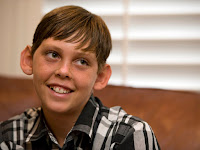Children on the Autism Spectrum: How Parents Can Provide Communication-Skills Training

If you have a child with High-Functioning Autism (HFA), one of his or her greatest challenges is in the area of communication... As a parent, you will want to (a) communicate in ways that will support your youngster's ease of understanding, and (b) discover how best to assist your youngster in deciphering communication in everyday conversation. Your youngster wants to be socially accepted by his peers and others, and your efforts to foster a mutual comfort level where communication is concerned will be critical in achieving this goal. How to help your child develop communications skills: 1. Accept your youngster's (a) “ballpark” approximation of direct eye contact if he stares at your ears, mouth, or some area of your face other than your eyes while you are talking, (b) his need to look away from your eyes in order to formulate a thoughtful, articulate response, and (c) his need to make fleeting eye contact, look away, and then look back. 2. Allow for process


